On a recent trip to Denver I was able to meet with five of the people who read this blog and discovered that I wish I knew you all a little bit better!
So this post is your opportunity to let me get to know you, and allow you to introduce yourself and get to know one another.

In the comment section below, tell us a bit about yourself, your story, and where you are at with God, church, and Christian theology right now. What big issues are you facing? What big questions do you have?
If you want, include a line about where you currently live (e.g., which city) so that others who may live near you can connect with you, or maybe I can connect with you if I travel to your area.
If you blog, please include a link to your blog in your comment, and state in a sentence or two what your blog is about.
If you have written a book, please link to where people can learn more about it and buy a copy.






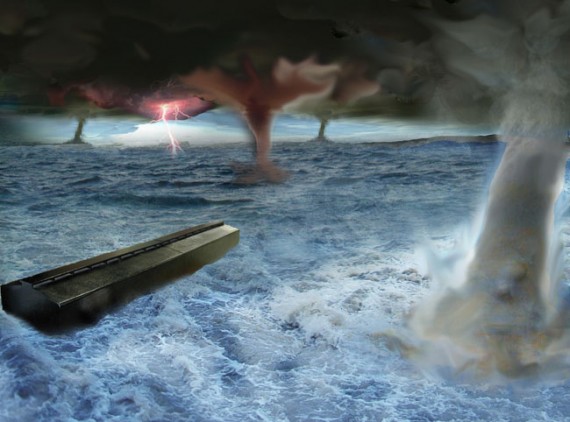

 How can a God who says "Love your enemies" (Matthew 5:44) be the same God who instructs His people in the Old Testament to kill their enemies?
How can a God who says "Love your enemies" (Matthew 5:44) be the same God who instructs His people in the Old Testament to kill their enemies?

 When bad things happen in this world, God often takes the responsibility for them because He is the one who created a universe where such evil things are possible.
When bad things happen in this world, God often takes the responsibility for them because He is the one who created a universe where such evil things are possible.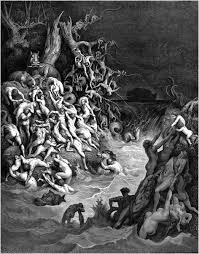 And every living substance was destroyed which was upon the face of the ground, both man, and cattle, and the creeping things, and the fowl of the heaven; and they were destroyed from the earth: and Noah only remained alive, and they that were with him in the ark.
And every living substance was destroyed which was upon the face of the ground, both man, and cattle, and the creeping things, and the fowl of the heaven; and they were destroyed from the earth: and Noah only remained alive, and they that were with him in the ark.
 If you have been reading this blog for the past eighteen months or so, you will know that I have been trying to write a book called When God Pled Guilty. The writing process of the book has been of twists and turns, stops and starts, but I finally feel that I am getting back on track, and so decided to write a post which kind of gets everyone up to speed and provides a bit of the back story. This is that post.
If you have been reading this blog for the past eighteen months or so, you will know that I have been trying to write a book called When God Pled Guilty. The writing process of the book has been of twists and turns, stops and starts, but I finally feel that I am getting back on track, and so decided to write a post which kind of gets everyone up to speed and provides a bit of the back story. This is that post.
 During this break, not only did I read a lot of books, but I thought a lot about the proposal, I talked with some people about it, and I wrote and wrote and wrote (Writing is how I learn and how I think).
During this break, not only did I read a lot of books, but I thought a lot about the proposal, I talked with some people about it, and I wrote and wrote and wrote (Writing is how I learn and how I think).
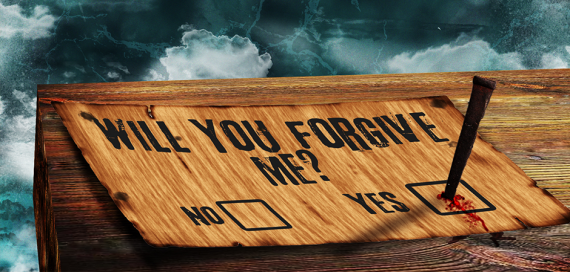
 God stooped to become one of us, and took our sin upon Himself, so that He might be both the forgiver and the forgiven.
God stooped to become one of us, and took our sin upon Himself, so that He might be both the forgiver and the forgiven.
 If it is on the
If it is on the 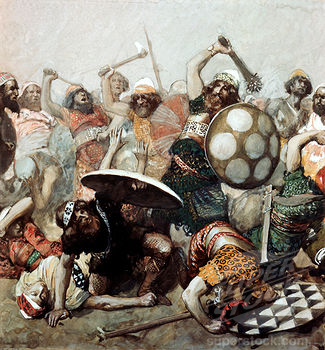 God Takes on the Violence of All Humanity
God Takes on the Violence of All Humanity
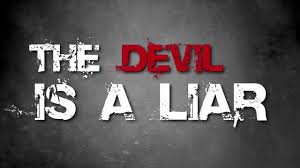 Such murderous, deceitful, lying violence is proof that when we behave this way, we are of our father the Devil. The devil was a liar and a murder from the beginning, meaning that he not only leads people murder and commit violence, but then loves to get people to lie about it as well, especially lie about the source of the violence.
Such murderous, deceitful, lying violence is proof that when we behave this way, we are of our father the Devil. The devil was a liar and a murder from the beginning, meaning that he not only leads people murder and commit violence, but then loves to get people to lie about it as well, especially lie about the source of the violence. When bad things happen, we blame God.
When bad things happen, we blame God.
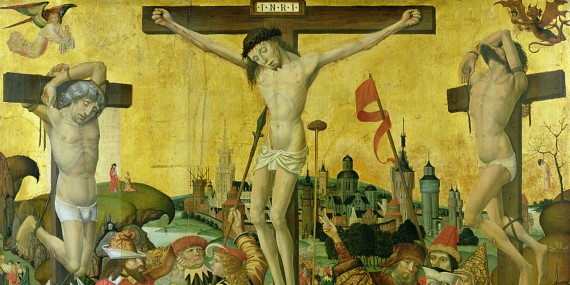


 One of the reasons Jesus came was to reveal God to us.
One of the reasons Jesus came was to reveal God to us.

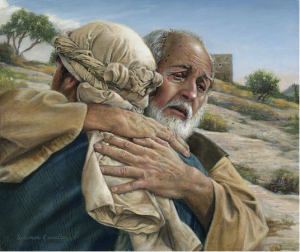 When the son returns, the father has clearly been watching for his return, for when the son is still a long way off, the father sees him coming, and runs to meet him on the road. For a wealthy middle-eastern man, any sort of running was considered shameful, but to run to meet a son who had betrayed you was extremely shameful. Nevertheless, due to the father’s great love for his son, he runs to meet him, and not only that, but gives him a warm welcome and throws a party for him.
When the son returns, the father has clearly been watching for his return, for when the son is still a long way off, the father sees him coming, and runs to meet him on the road. For a wealthy middle-eastern man, any sort of running was considered shameful, but to run to meet a son who had betrayed you was extremely shameful. Nevertheless, due to the father’s great love for his son, he runs to meet him, and not only that, but gives him a warm welcome and throws a party for him.